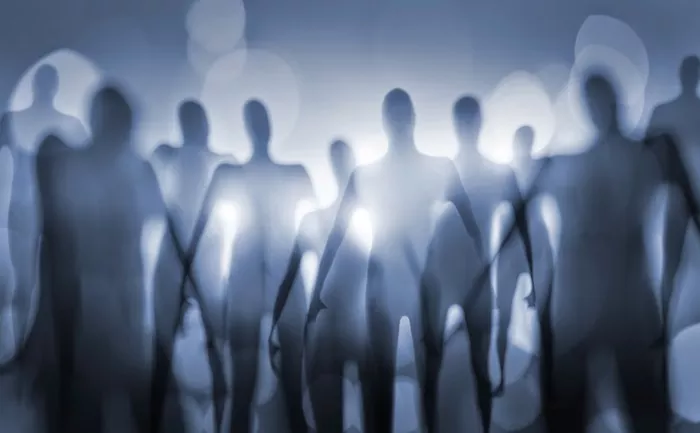Schizophrenia is a complex and chronic mental health disorder that significantly affects how a person thinks, feels, and behaves. People with schizophrenia may seem like they have lost touch with reality, which can be distressing for both the individual and their loved ones. One of the most prevalent and disruptive symptoms of schizophrenia is delusions. This article explores delusions in detail, along with a comprehensive overview of schizophrenia, its causes, other symptoms, treatment options, and coping strategies.
Schizophrenia is not as common as other mental health disorders, but its effects can be profound. According to studies, the disorder affects less than 1% of the U.S. population. It usually manifests between the late teens and early 30s, with men often showing signs of the disorder slightly earlier than women.
What Causes Schizophrenia?
The exact causes of schizophrenia are still not fully understood, but researchers believe it is a combination of genetics, brain chemistry, and environment that contributes to the development of the disorder. Factors that may increase the risk include:
Genetic Heritage: Having a family history of schizophrenia can significantly increase the risk.
Neurobiological Factors: People with schizophrenia have differences in brain chemistry and structure, including abnormal dopamine and glutamate levels.
Prenatal Factors: Exposure to viruses, malnutrition before birth, problems during birth, and psychosocial stress are believed to contribute to the development of schizophrenia.
Environmental Stressors: Stressful life experiences and drug use in adolescence or young adulthood can trigger schizophrenia in people who are predisposed to the disorder.
Understanding Delusions
Delusions are one of the hallmark symptoms of schizophrenia and can be particularly distressing. They are false beliefs that are not based in reality and can involve themes of persecution, grandeur, jealousy, or somatic concerns. For instance, a person might believe that they are being conspired against by the government or that they have special powers or a high-status identity. These delusions are genuinely believed by the person experiencing them and are held with strong conviction despite evidence to the contrary.
Types of Delusions in Schizophrenia
Delusions in schizophrenia can vary widely in both theme and intensity. Some of the most common types include:
Persecutory Delusions: Believing that one is going to be harmed by an individual, organization, or other group. This is the most common type of delusion.
Referential Delusions: Believing that certain gestures, comments, environmental cues, and so forth are directed at oneself.
Grandiose Delusions: Believing that one has exceptional abilities, wealth, or fame.
Erotomanic Delusions: Believing that another person is in love with oneself.
Nihilistic Delusions: The conviction that a major catastrophe will occur.
Somatic Delusions: Beliefs centered around body functions or systems.
Impact of Delusions on Daily Life
Delusions can severely impair one’s ability to function day-to-day. They can lead to irrational behaviors, social isolation, and problems in personal relationships. In severe cases, delusions can contribute to the risk of self-harm or harm to others, especially if the person believes they need to defend themselves against perceived threats.
Diagnosing Schizophrenia
The diagnosis of schizophrenia involves ruling out other mental health disorders and determining that symptoms are not due to substance abuse, medication, or a medical condition. A comprehensive clinical assessment which includes discussion about personal and family history and observing the individual’s behavior is crucial. Diagnostic tools such as the DSM-5 (Diagnostic and Statistical Manual of Mental Disorders, Fifth Edition) provide criteria for schizophrenia diagnosis.
Treatment and Management of Schizophrenia
Treating schizophrenia is a lifelong process, focusing on managing symptoms and improving quality of life. Treatment typically involves a combination of:
Antipsychotic Medications: These are the cornerstone of schizophrenia treatment, helping to manage symptoms by affecting neurotransmitter activity in the brain.
Psychotherapy: Individual therapy can help the person understand and cope with the diagnosis. Cognitive-behavioral therapy (CBT) is particularly effective in helping to manage how they react to their symptoms.
Family Therapy: This helps families cope more effectively with the challenges of living with someone who has schizophrenia.
Social Skills Training: This focuses on improving communication and social interactions and improving the ability to participate in daily activities.
Supported Employment: This helps people with schizophrenia prepare for, find, and keep jobs.
Coping Strategies and Support
Coping with schizophrenia is challenging both for the individual and their loved ones. Key strategies include:
Education: Understanding schizophrenia can reduce stigma and help in better management.
Support Groups: Joining a support group can connect individuals and families with others facing similar challenges.
Health Management: Regular exercise, a balanced diet, and adequate sleep are crucial.
Regular Follow-up: Routine medical care can help monitor and adjust treatments as necessary.
Conclusion
Delusions are a prominent and often debilitating symptom of schizophrenia, but understanding and managing these delusions is possible with effective treatment and support. With ongoing research, the outlook for people with schizophrenia continues to improve, offering hope for better management of symptoms and a more fulfilling life. Treatment is most effective when it is ongoing and combines both medical and psychological approaches. By fostering a deeper understanding of schizophrenia and its impact, individuals, families, and communities can better support those affected by this complex disorder.
[inline_related_posts title=”You Might Be Interested In” title_align=”left” style=”list” number=”6″ align=”none” ids=”8128,8131,8035″ by=”categories” orderby=”rand” order=”DESC” hide_thumb=”no” thumb_right=”no” views=”no” date=”yes” grid_columns=”2″ post_type=”” tax=””]































